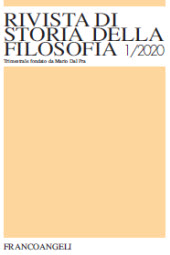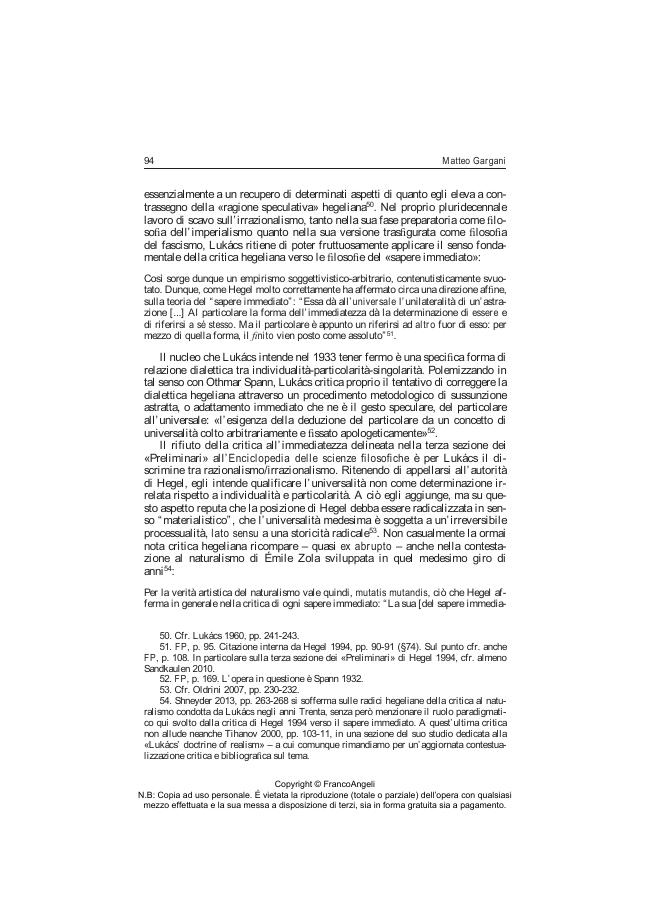Lukács 1933-1942 : l'irrazionalismo nell'età del fascismo
81-106 p.
This essay reconstructs the philosophical and historiographical premises to Georg Lukács' research on irrationalism conducted during the period of Nazi rule in Germany. To this end, the Author focuses chiefly on two posthumous works: How Did Fascist Philosophy Arise in Germany? (1933) and How Did Germany Become the Centre of reactionary Ideology? (1941-1942). After a brief historical contextualization, the Author illustrates the main purpose of these texts: to free German philosophy and culture between the XIX and XX century from those irrationalistic elements asserted and nourished by Fascist philosophy. He then analyzes Lukács' concept of reason in its three fundamental aspects, namely the methodological link with Marx's historical image of the political development of Europe during the XIX century, the theoretical debt to Hegel's critique of immediacy and the connection with some ethical points already discussed during the Goethezeit. [Publisher's text].
Forma parte de
Rivista di storia della filosofia : LXXV, 1, 2020-
Artículos del mismo número (disponibles individualmente)
-
Información
Código DOI: 10.3280/SF2020-001004
ISSN: 1972-5558
MATERIAS
KEYWORDS
- Lukács, irrationalism, Nazism, ideology, Marxism, ethics



